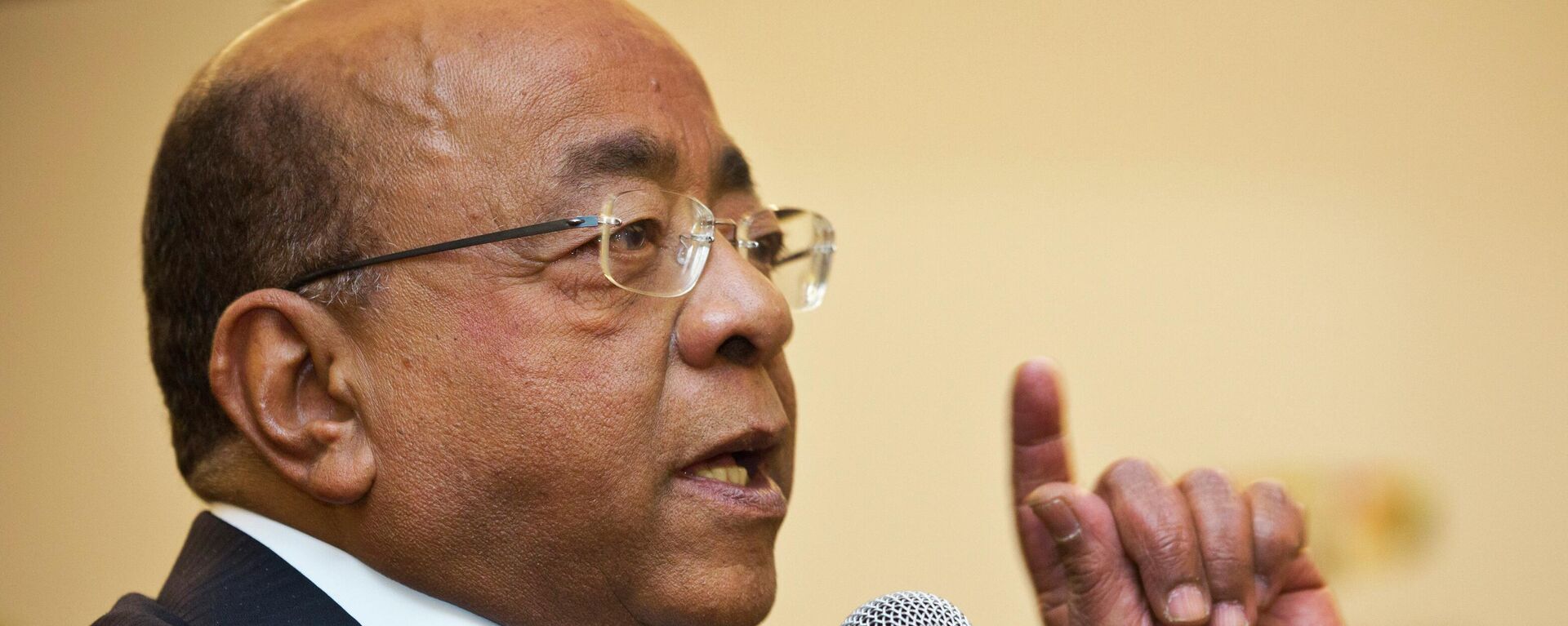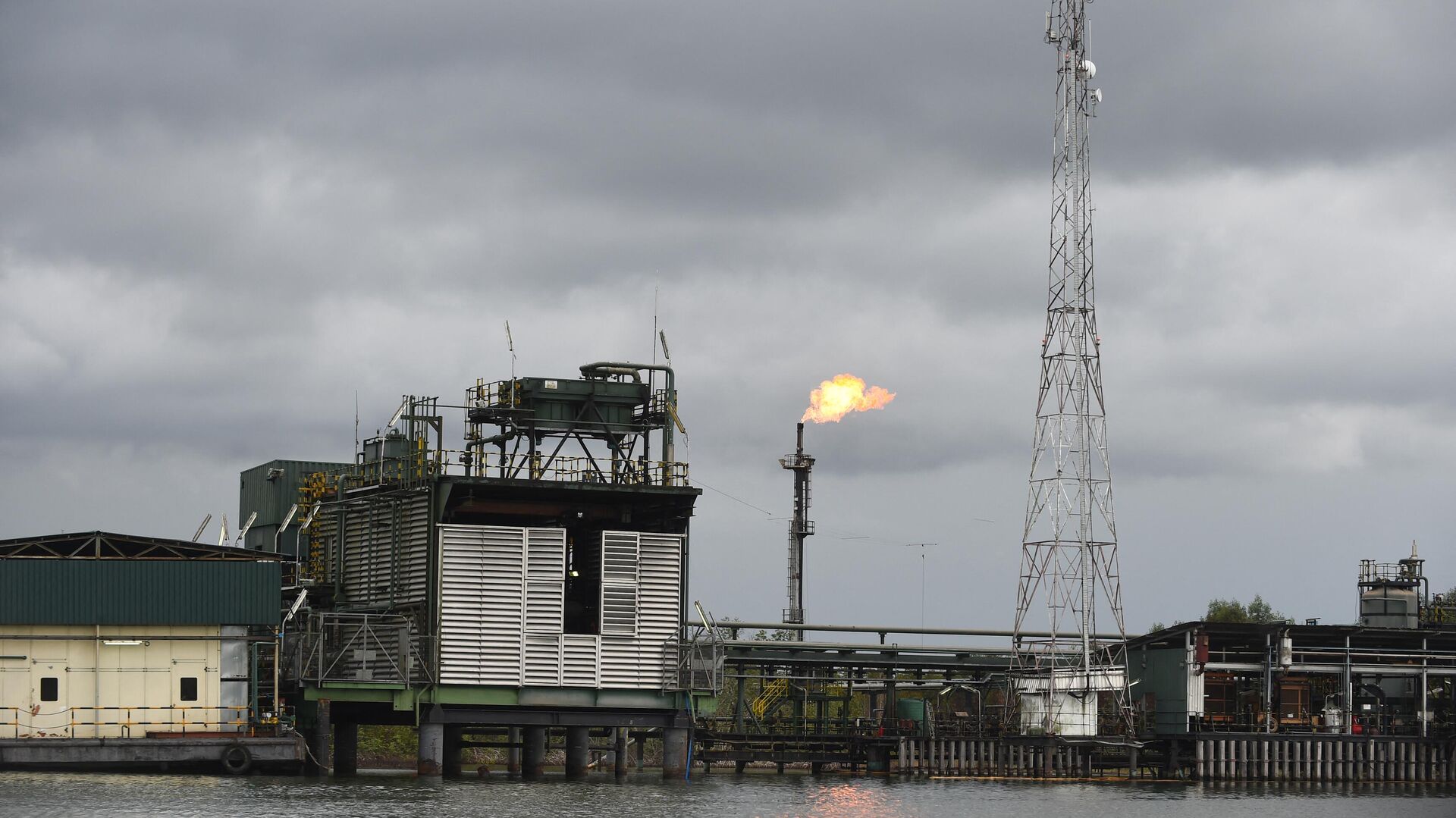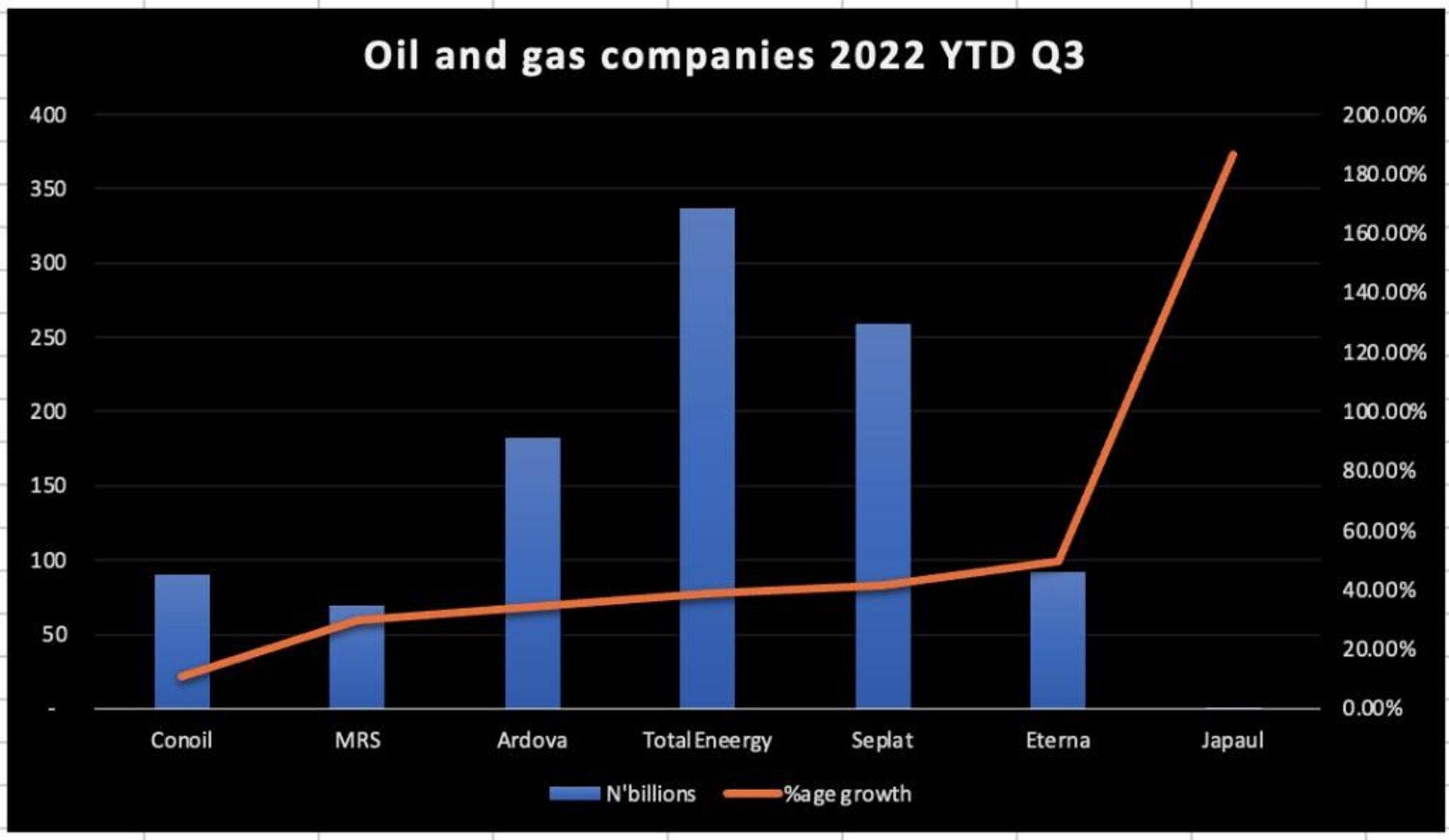https://sputnikglobe.com/20221112/analysis-nigerian-oil-sectors-revenue-rises-year-on-year-despite-complications-1104050438.html
Analysis: Nigerian Oil Sector's Revenue Rises Year-On-Year Despite Complications
Analysis: Nigerian Oil Sector's Revenue Rises Year-On-Year Despite Complications
Sputnik International
The revenue of Nigerian fossil energy companies exceeded the last year's figures, despite multiple negative factors, a report says.
2022-11-12T14:31+0000
2022-11-12T14:31+0000
2022-11-23T11:37+0000
africa
nigeria
petroleum
economy
fossil fuels
rating
fitch
fitch ratings
west africa
oil
https://cdn1.img.sputnikglobe.com/img/07e6/0b/0c/1104048765_0:15:3455:1958_1920x0_80_0_0_330a99965ca7559dfbbc99fcb8475b4a.jpg
The revenues of Nigerian fossil energy companies exceeded last year's figures, despite a slew of negative factors, as pointed out in a Nairametrics research. The media said that the "revenue growth is remarkable, considering economic disruptions in the global economy".During 2022, Nigeria's economy faced several challenges. For most months of 2022, revenue in the country's oil sector was slightly lower than in 2021. In September, Nigerian oil production hit its lowest point, according to reports.Oil theft and pipeline vandalism were the main reasons for the decline in oil production, which led to the Nigerian government spending more than $28Mln on protecting its oil pipelines.This week, Fitch Ratings downgraded Nigeria one level lower to B- because of worsened government debt service costs and external liquidity.Previously, African leaders expressed an opinion that their continent suffers from the inadequate financial policies of foreign countries, as well as biased investment ratings that lead to higher interest rates.Recently, Nigerian politician Ned Munir Nwoko said that the launch of the Nigeria-Morocco gas pipeline could reinforce Nigeria's economy.
https://sputnikglobe.com/20221004/sudanese-british-magnate-ibrahim-blasts-wests-hypocrisy-over-green-agenda-use-of-african-resources-1101486491.html
africa
nigeria
west africa
Sputnik International
feedback@sputniknews.com
+74956456601
MIA „Rosiya Segodnya“
2022
News
en_EN
Sputnik International
feedback@sputniknews.com
+74956456601
MIA „Rosiya Segodnya“
Sputnik International
feedback@sputniknews.com
+74956456601
MIA „Rosiya Segodnya“
nigerian economy, nigerian oil sector, african economy, african companies revenue, world energy crisis
nigerian economy, nigerian oil sector, african economy, african companies revenue, world energy crisis
Analysis: Nigerian Oil Sector's Revenue Rises Year-On-Year Despite Complications
14:31 GMT 12.11.2022 (Updated: 11:37 GMT 23.11.2022) With some 225Mln inhabitants, Nigeria is Africa's most populous country. Economically, the vast and young population relies largely on the petroleum industry.
The revenues of Nigerian fossil energy companies exceeded last year's figures, despite a slew of negative factors, as
pointed out in a Nairametrics research. The media said that the "revenue growth is remarkable, considering economic disruptions in the global economy".
“An analysis of results of Nigeria’s publicly leading oil and gas companies reveal they earned a whopping sum of 1 trillion naira [approximately $2.3Bln] revenue in the nine months that ended September 2022, outpacing earnings of 776.9Bln naira [around $1.8 billion] in the same period in 2021," the report says.
During 2022, Nigeria's economy faced several challenges. For most months of 2022, revenue in the country's oil sector was slightly lower than in 2021. In September, Nigerian oil production hit its lowest point, according to reports.
Oil theft and pipeline vandalism were the main reasons for the decline in oil production, which led to the Nigerian government spending more than $28Mln on protecting its oil pipelines.
This week, Fitch Ratings downgraded Nigeria one level lower to B- because of worsened government debt service costs and external liquidity.
“Low oil production and the expensive subsidy on petrol have consumed most of the fiscal benefit of high oil prices in 2022 and will continue to stress already low government revenue levels,” analysts wrote.
Previously, African leaders
expressed an opinion that their continent suffers from the inadequate financial policies of foreign countries, as well as biased investment ratings that lead to higher interest rates.

4 October 2022, 12:26 GMT
Recently, Nigerian politician Ned Munir Nwoko said that the launch of the Nigeria-Morocco
gas pipeline could reinforce Nigeria's economy.






